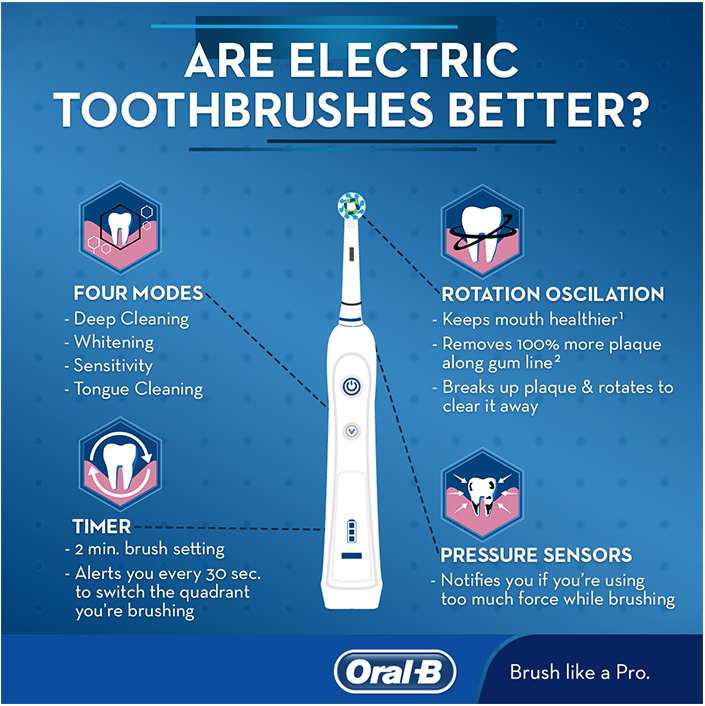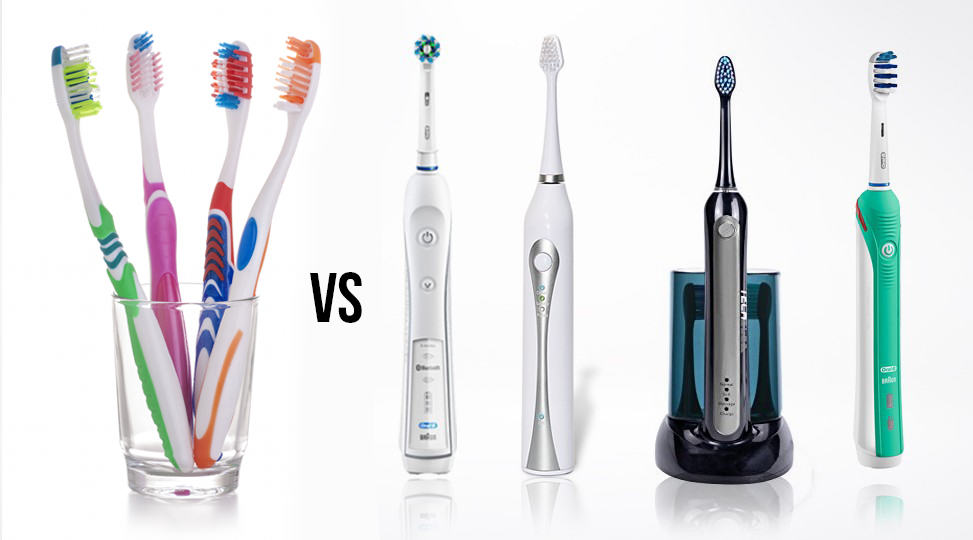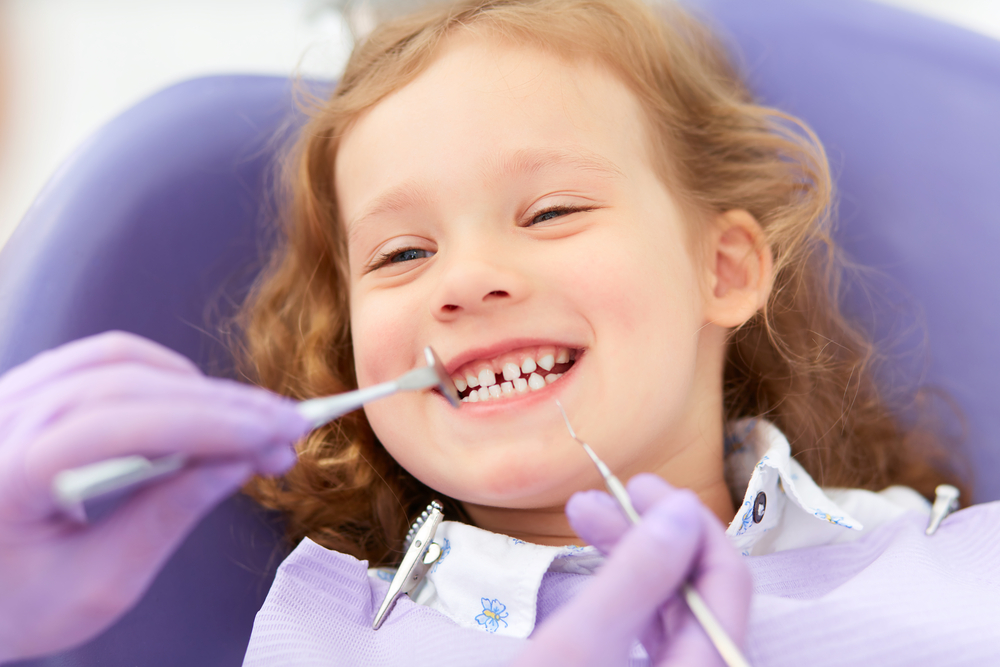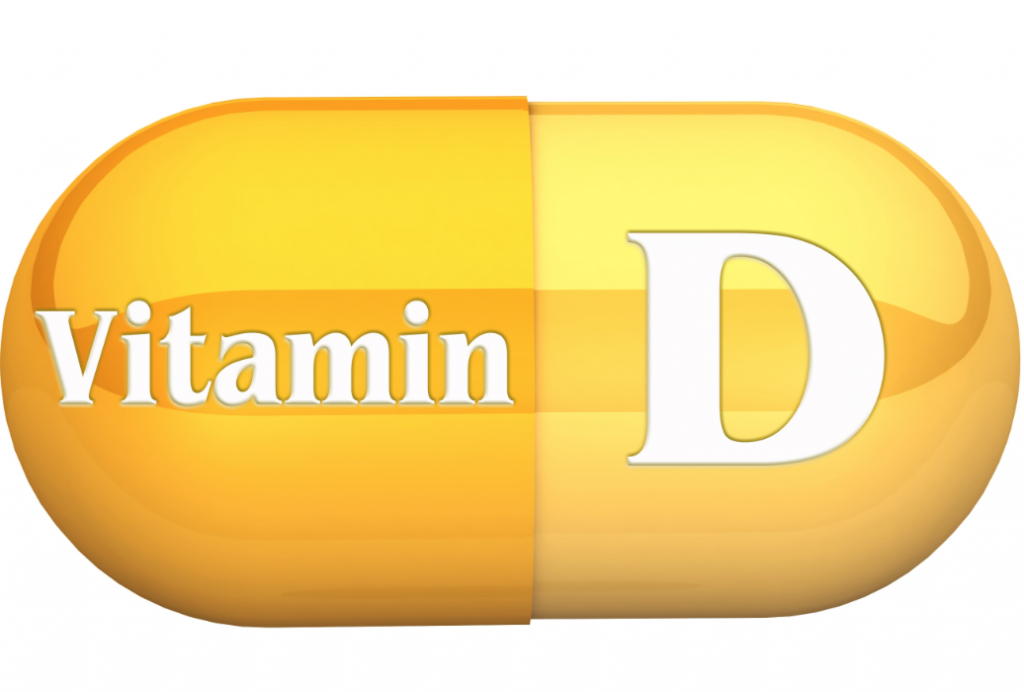Preventative dentistry is about more than just visiting your dentist twice yearly for an exam and thorough cleaning. The majority of your preventative care is done at-home as a part of your normal hygiene routine.
Brushing your teeth regularly is the foundation of good oral care and prevention. According to the American Dental Association (ADA), both electric and manual toothbrushes are effective at removing oral plaque that causes tooth decay and gum disease.
Electric Toothbrush vs. Manual – The Debate
Electric brushes have become increasingly popular over the years, leaving patients to wonder which is better than the other.
Both electric and manual toothbrushes have their own benefits. The American Dental Association (ADA) puts a Seal of Acceptance on any toothbrush, electric or manual, that’s proven safe and effective.
What are the Benefits of An Electric Toothbrush?

Superior Plaque Removal
According to a 2005 independent study, “Brushes that worked with a rotation oscillation action removed more plaque and reduced gingivitis more effectively than manual brushes in the short and long term… No other powered brush designs were consistently superior…”
Ease of Use
With a manual toothbrush, you have to move it back and forth along your teeth, but an electric toothbrush does the cleaning action for you. That means you need only guide it along the surfaces of your teeth. Some electric brushes (Sonicare) produce sonic vibrations that are difficult to mimic with a hand brush! Other electric brushes like Oral-B and Rotadent have small heads that help you access hard-to-reach areas of your mouth.
Once they get the hang of it, many people find this method of brushing easier. Additionally, people with disabilities, arthritis, or other conditions may find using an electric toothbrush easier and also less painful. Electric toothbrushes may also help kids brush their teeth more effectively. (Make sure to check the age recommendations on an electric toothbrush before letting your child use it)
Technology and Features
As today’s electric toothbrushes offer more bells and whistles, some electric toothbrushes can even enable you to improve your brushing habits. Most offer convenient features such as a brush head or toothbrush holder, bathroom counter storage units, and travel toothbrush chargers. Additional features may include:
- Multiple brushing modes specialized for sensitive teeth, whitening benefits or gum-massaging action
- Pressure sensors to signal when you’re brushing too hard
- Timers to help you keep track of how long you’re brushing each quadrant of your mouth
- Digital reminders to replace your brush head
- Oscillating/pulsating and cupping, oscillating/rotating or sonic technology
- Multiple brush head compatibility so you can choose which kind of bristle design you prefer
Benefits of A Manual Toothbrush
Manual toothbrushes are the original, and have been around for a long time. While they don’t have the fancy bells and whistles that electric toothbrushes do, they are still an effective tool for cleaning your teeth and preventing gingivitis.
- Comfort and Familiarity – If you’re most comfortable sticking with a manual toothbrush, continue using one if it means you’ll still brush for two minutes, twice per day, every day.
- Accessible – You can get a manual toothbrush at almost any grocery store, gas station, dollar store, or pharmacy. They also don’t need to be charged to function, so you can use a manual toothbrush anywhere and at any time.
- Affordable – Manual toothbrushes are cost-effective. You can usually buy one for $1 to $3.
Results?
You can effectively brush your teeth with either a manual toothbrush or an electric one. However, the rapid movements of motorized versions is typically considered to be more effective at removing plaque from the teeth and gum line. And because they provide the brushing action for you, many people find using power toothbrushes easier than using regular manual ones.
If you have questions about which tooth brush is best for you, call our office, or ask us your next visit.



